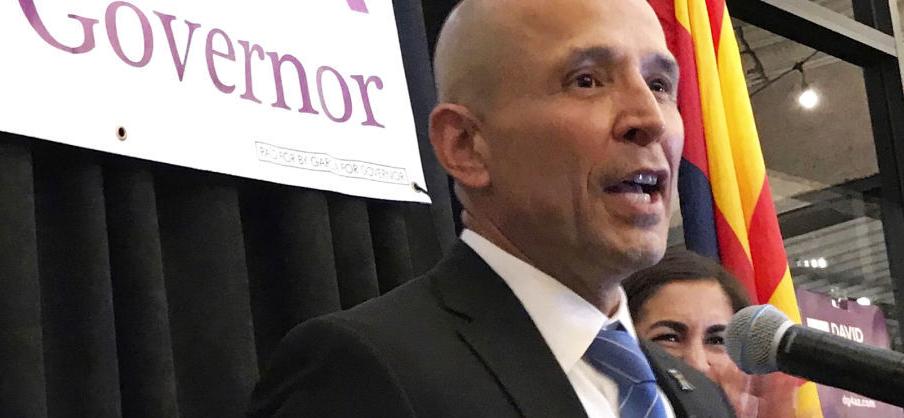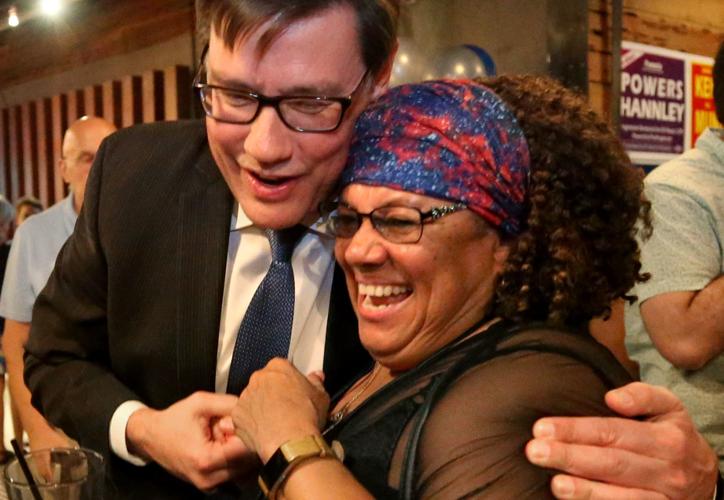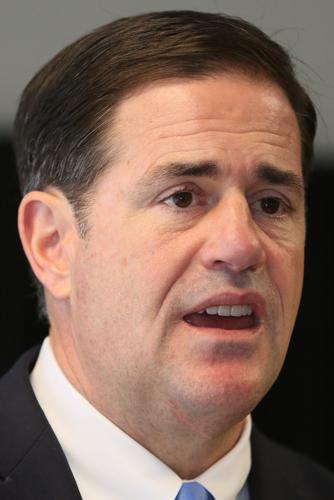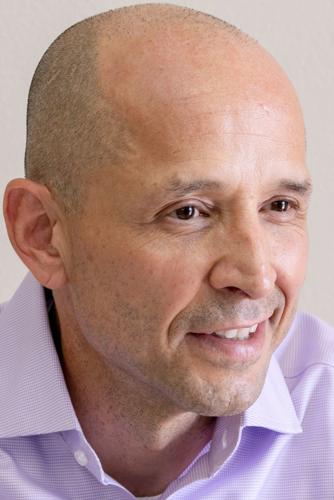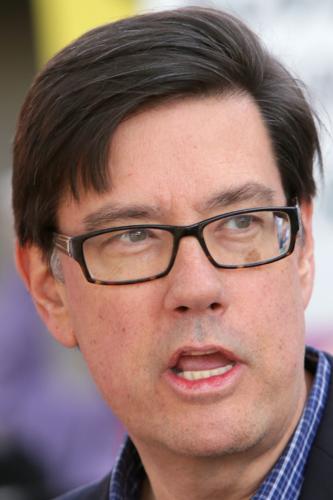PHOENIX — An educator who couldn’t defeat Diane Douglas for state schools chief two years ago is in line to be the Democrat who takes on incumbent Republican Gov. Doug Ducey in November.
Phoenix resident David Garcia parlayed his laser focus on public education — and the public focus on the issue — into besting state Sen. Steve Farley of Tucson.
Garcia had until last year been weighing another bid for state schools superintendent, having lost narrowly in 2014 to Douglas despite her running as a kind of one-note candidate under the banner of eliminating the Common Core curriculum.
But that was before Ducey signed legislation last year to create universal vouchers, allowing any student to get state tax dollars to attend private and parochial schools.
Garcia called that “the most devastating blow to public education in state history” as he changed his focus and decided to seek the gubernatorial nomination.
Garcia also has been linked closely to the Red for Ed movement and got the endorsement of the Arizona Education Association.
Farley, by contrast, made his bid on the basis of his 12 years in the Arizona Legislature representing Tucson and his knowledge of how state government runs.
Both were better funded than Kelly Fryer, the head of the Southern Arizona YWCA. She sought to differentiate herself from the other two by saying they were focused too much on border security and not enough on the humanitarian issues of people who are in this country illegally.
Meanwhile, on the Republican side, Ducey made quick work of defeating former Secretary of State Ken Bennett.
Bennett was plagued by lack of funding, caused at least in part by the fact he did not get into the hunt until April 21. That left him just a short period of time to qualify for public funding, money that he never got before Tuesday’s primary.
In fact, Bennett told Capitol Media Services he would not have gotten into the race except for Ducey’s sudden announcement that month that he had found enough money to boost teacher pay by 19 percent by 2020. He pointed out that Ducey had for months insisted that there was only enough money in the state budget for a 1 percent pay hike. Only in April, with a teacher strike looming, did Ducey say there was now enough for those larger raises.
“He panicked and caved for the Red for Ed debacle,” Bennett said.
Ducey said he was bolstered by figures showing state revenues coming in much faster than anticipated, a sign of an improving economy. But Bennett said it actually involved a tax increase — a boost in vehicle registration fees — as well as “accounting gimmicks” of moving money around.
But Bennett also found himself at the center of a controversy during the months after Sen. John McCain became ill and there was speculation he would quit. Bennett, who acknowledged he did not support many of McCain’s policies, said if he were governor he would not name Cindy McCain to replace her husband.
That drew criticism among those who said speculation was unseemly.
Bennett also tried to lock up the Second Amendment vote by lashing out at Ducey’s school-safety plans to allow judges to have people locked up for evaluation and seize weapons of those who pose a potential threat. His answer was more guns in more places. But he found himself gaining little traction, with Ducey refusing to debate him.
Garcia also found himself in a Bennett-like situation during the campaign, with his comments suggesting the abolition of Immigration and Customs Enforcement, a popular issue among certain elements of the Democratic Party. Garcia sought to clarify that he was suggesting restructuring the agency rather than eliminating it outright.


